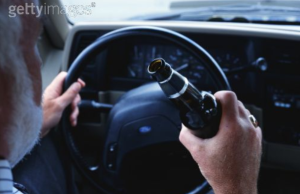When minors, those below 18 years of age, commit atrocious crimes, it’s scary and shocking. How can a child bear to carry out heinous acts? It’s chilling to imagine; but there have been many appalling reports regarding juveniles and the monstrous crimes that they commit. So, what happens to a minor who gets arrested for a serious crime?
How old are the children tried in juvenile courts?
Juvenile courts handle legal proceedings and trials concerning minors or children below 18 years old. Such courts generally consider children aged 7 and below to be too young. However, juveniles who are 14 to 18 years old can be tried in either a juvenile or an adult court. The court believes that those who are 14 to 18 have knowledge about what’s right and wrong, and so they are held responsible for their actions.
Are parents or guardians allowed to post bail for minors?
There are certain differences between the legal rights of adults and the rights of minors. To illustrate, adults have the right to bail, while children do not have this right. There are also some constitutional rights that both adults and minors benefit from, such as the right to an attorney.
As mentioned, there’s no bail for children. However, they are not sent to jail to wait for their court appearance. Minors can either be placed in a juvenile facility or placed under the custody of their parents or guardians. If a minor commits a serious felony and he is going to be tried in court, then he will be entitled to bail.
What happens to a juvenile who commits a minor crime?
Most children who commit misdemeanors may be warned and detained for a while and then sent home. This may be at the discretion of a police officer. In some cases, minors may be detained for a few hours and then released to their parents or guardians. Cases may also be referred to the juvenile court.
What happens to a juvenile who commits a serious felony?
When a minor is charged formally, the first legal process to be tackled is arraignment. Here, he is formally charged or arraigned. At this time, the juvenile court judge will also determine whether the minor will be tried in a juvenile court or in an adult court. Many factors are considered here, such as the minor’s personality and history, as well as the gravity of the crime committed.
Are children detained with other adult criminals?
No, the juvenile justice system generally aims to rehabilitate instead of punish. The juvenile court is often optimistic that minors will change for the better; and thus, they are not placed with adults in order to reduce children’s exposure to criminal elements. Minors are typically detained in juvenile detention facilities or released to their parents, known as home detention. Another form of detention includes the placement of minors in a facility where they will be monitored very closely. Other juveniles are also ordered to wear electronic monitoring gadgets.
Because there are differences in the laws of each state, it’s best to contact a lawyer if your child committed a criminal act. Ask about what you can do because there is always a huge chance that no formal charges will be filed against your child, especially for misdemeanors. It’s also even more important to have legal representation when your child is suspected to have committed a very serious felony.
The article is by Claire Brown. Brown specializes in legal matters and tackles issues concerning bail. She also writes for companies that provide bail bonds direct services.



